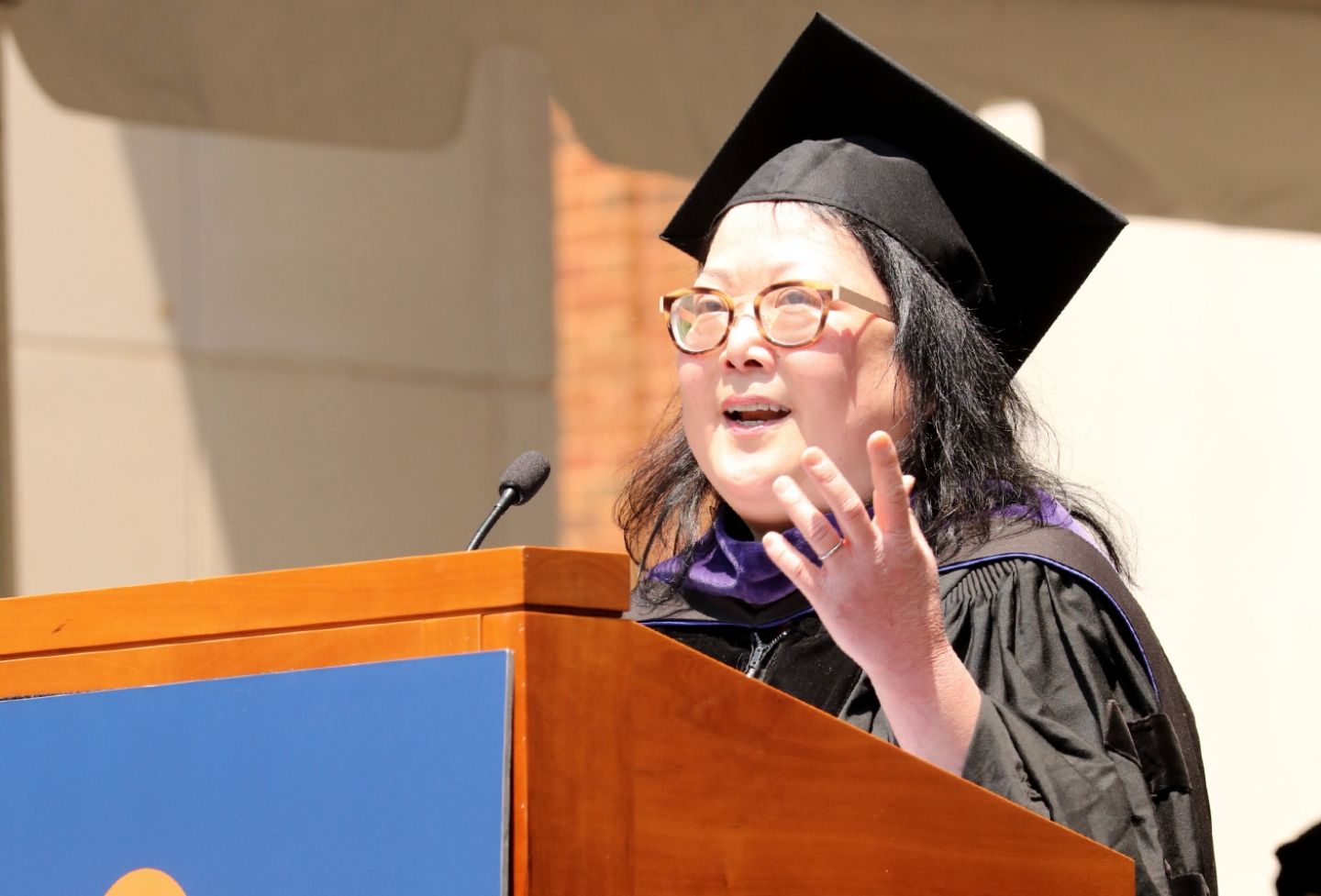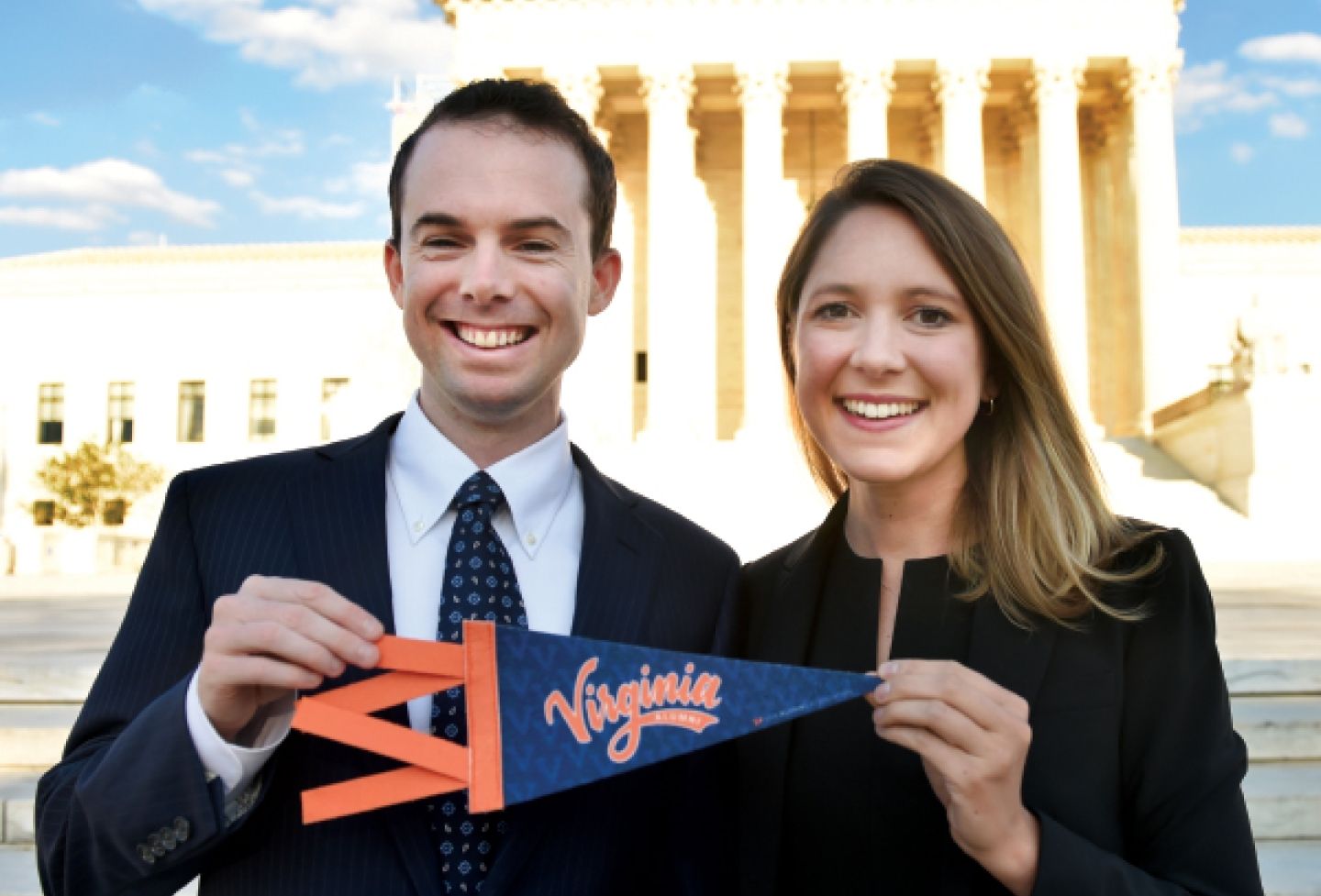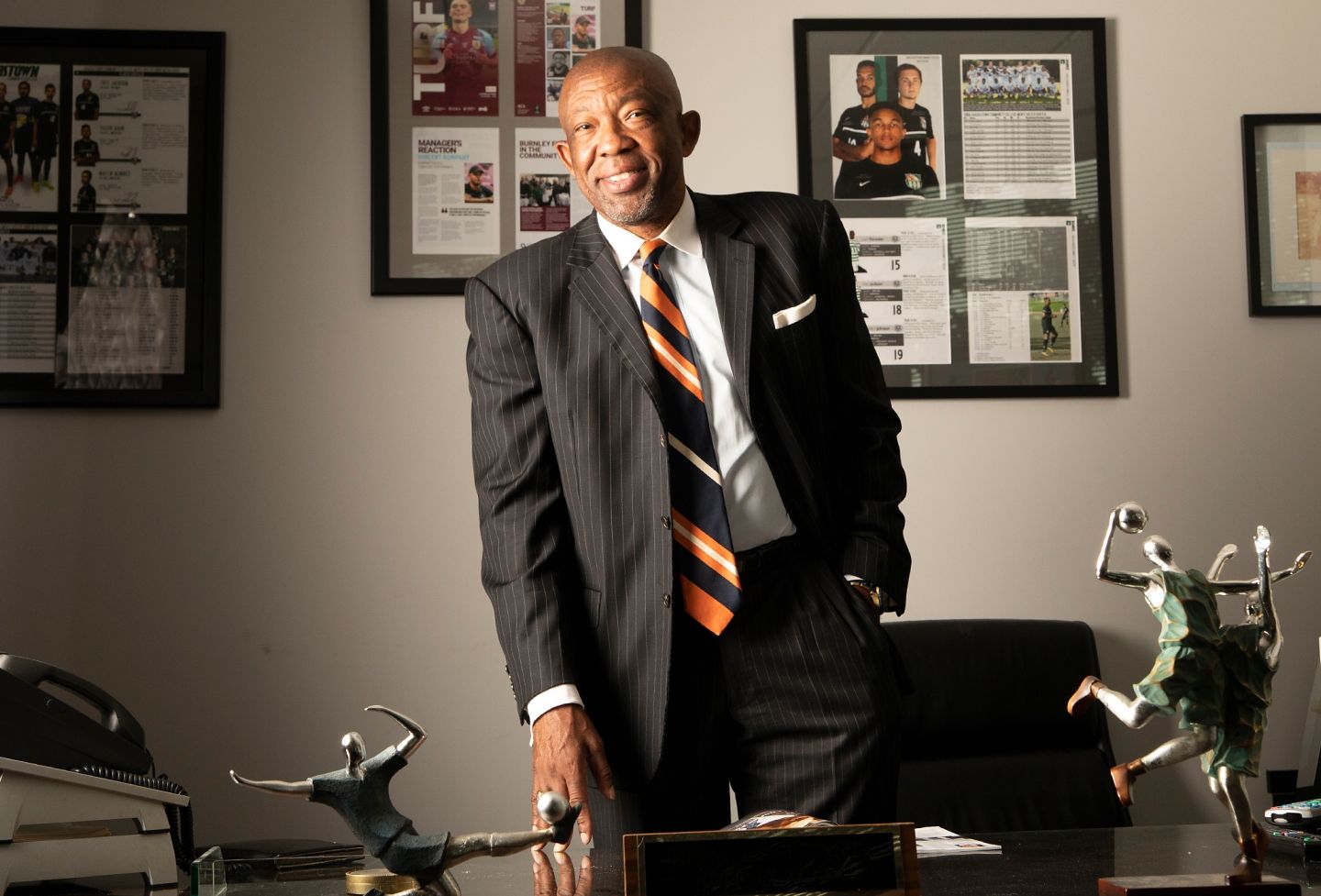With political discord and polarization at a fever pitch nationwide, one student group has found a novel way to strengthen the social fabric through conversation at UVA Law.
Common Law Grounds, now approaching its seventh year, continues to organize and sponsor student events focused on discussing difficult and timely topics at large roundtable discussions, one-on-one lunches and, last year, through autobiographical monologues.
“We’ve had a roundtable about abortion, and that can be a really difficult topic because not only do people have varying opinions on it, but it also affects people in very different ways, so that’s going to be very personal,” said Kristen Carpenter, a second-year student serving as vice president of the organization. “I think affirmative action is another example that affects a lot of people, especially in the higher education context. Being able to have those conversations is really valuable, even if it might be difficult.”
At the group’s first event of the year, held on Sept. 11, the assigned topic was designed to be an introduction to the value and complexities of having these conversations. Students who participated were broken into groups of six or so to discuss how and why these conversations are meaningful, and how to start such a dialogue with someone who consumes different news sources.
The conversations are civil, Carpenter said, “because you’re not going to be able to have a fruitful conversation if you’re attacking other people for who they are or what they believe.”
Common Law Grounds President Rachel Lia ’24 noted that the group is not a centrist organization, nor one that necessarily seeks to build consensus where it doesn’t otherwise exist. To help ensure the next year’s board is ideologically diverse, board applicants are asked to place their own political beliefs on a numerical spectrum, with 1 being the most liberal and 10 being the most conservative.
“People think we’re a bunch of centrists, but we’re not all 5s,” Lia said. “I don’t know if we have 1s and 10s — people who would say ‘I have no sympathy whatsoever for the opposing viewpoint’ — but we do have those sides.”
Centrism wouldn’t achieve this group’s goal, she added. In a hyperpartisan world, it’s crucial to bring in starkly opposing viewpoints to inform one another. Lia has been asked to speak about the group on a national level, including at an event at the Bipartisan Policy Center in D.C.
Over the past year, the group’s roundtables have addressed political protests, sustainability, student loan forgiveness, the role of the Supreme Court and gun policy.
The gun debate took place last October, just a month before the Nov. 13 shooting deaths of three football players on Main Grounds. The discussion handouts asked students to consider and discuss the reasoning behind each side’s current stance, as well as the logic of the Second Amendment. The three-pager also included a plethora of data, from gun violence statistics to polling data, and asked students to discuss specific proposals they could support.
“I think this event was especially interesting because everyone could find a very clear common ground — gun violence is horrific and seems ever-present,” Lia said. “I thought it presented an opportunity for a very practical, solution-focused conversation.”
Although Common Law Grounds did not formally revisit the topic after the shooting on Grounds, Lia said, “I think it solidified the need for conversations that can effect change.”



